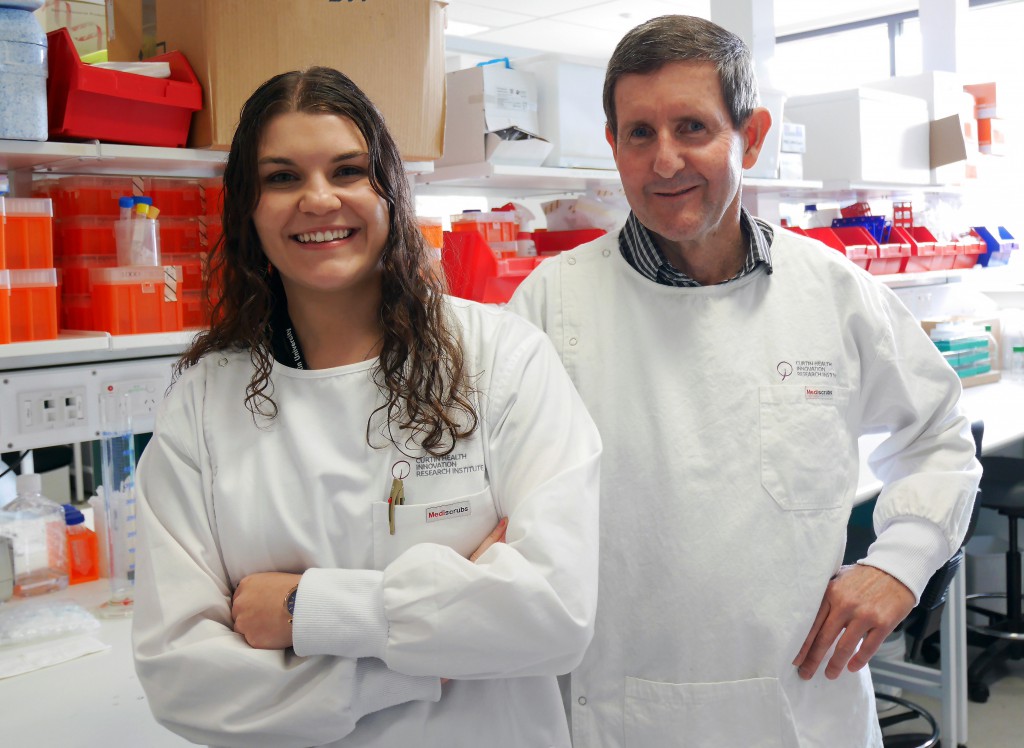Two Curtin Health Innovation Research Institute (CHIRI) PhD students have put their heads together and their hands up to secure a welcome funding boost for their research as part of an awards scheme offered by the institute. Shelley Waters and Michael Wildie are the latest recipients of funding under the CHIRI-Hands-Up Support Scheme, receiving a small grant for their research into human cytomegalovirus (CMV).
They will use the funding to find out more about why people respond differently to the virus, zeroing in on the role of a particular enzyme in the body inactivated by CMV and thought to be critical to immune response against it.
Most people are infected with CMV as children and many carry the virus all their lives, which presents a problem if our immune system is suppressed or becomes less active with ageing. When apparent, symptoms of the virus may include fever, sore throat, swollen glands, abdominal pain and jaundice, and in some cases severe disease.
Shelley said while CMV has several ways of evading the immune system, the difference in the immune response between individuals is poorly understood.
“Some people have a variant of this enzyme which resists the CMV inactivation and these people appear to have lower levels of antibody to CMV, which could mean the functional enzyme allows better control of the infection,” she said.
The natural variation in the activity of the same enzyme has been shown to influence the severity of some other diseases, but the effects of these natural variations in the enzyme have not been explored for CMV infection.
Michael said research already undertaken means CHIRI is uniquely placed to investigate the effects of the enzyme and some associated proteins on the immune response to CMV.
“Shelley and I will use the CHIRI-Hands-Up support to collaborate with the two CHIRI research teams, bringing their research together to hopefully advance what we know about CMV,” he said.
“One of the teams, led by Associate Professor Patricia Price, has already studied the immune response to CMV in a group of individuals, and another, led by Associate Professor David Groth, has developed the tests needed to detect the variants in the enzyme and associated proteins which impact on the immune response to CMV.”
CHIRI Director John Mamo said the awards, which were primarily targeted at early or mid-career CHIRI researchers with less than 10 years post-doctoral experience were to encourage lateral thinking and confidence to explore novel hypotheses.
“Our experience has found that often a research project may benefit immensely from a modest investment of extra funding – for example through purchase of an experimental system that will add further evidence to support a research idea; a collaboration like Shelley and Michael’s, or for travel to collect additional data or to learn a method that will enhance the research outcomes,” he said.
“The CHIRI-Hands-Up Support Scheme is our way of supporting our researchers to go that extra mile in cases where that little bit of additional support could potentially help them to make even greater inroads into their lines of research inquiry.”
